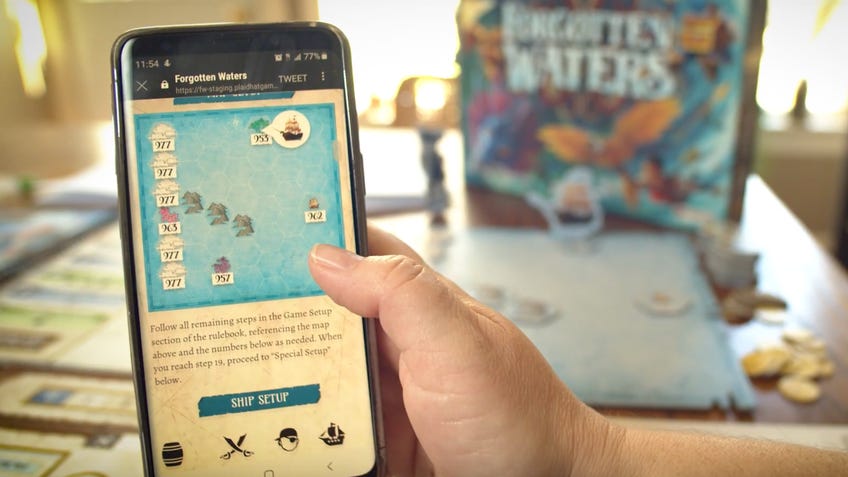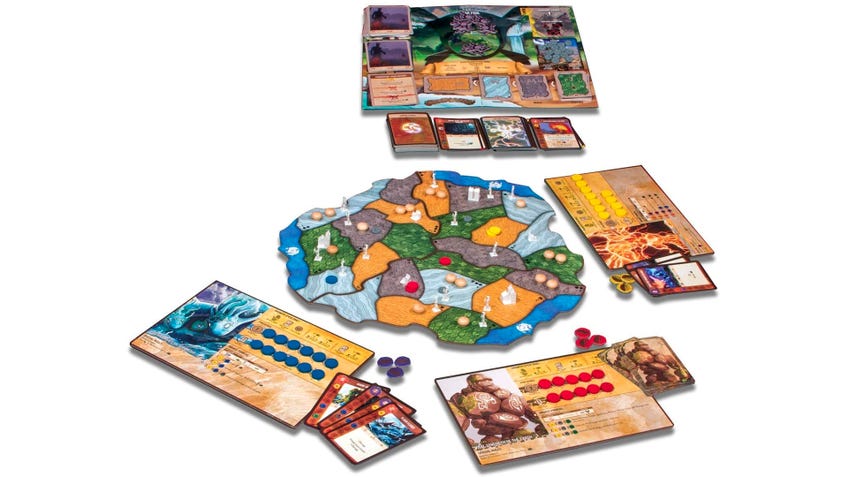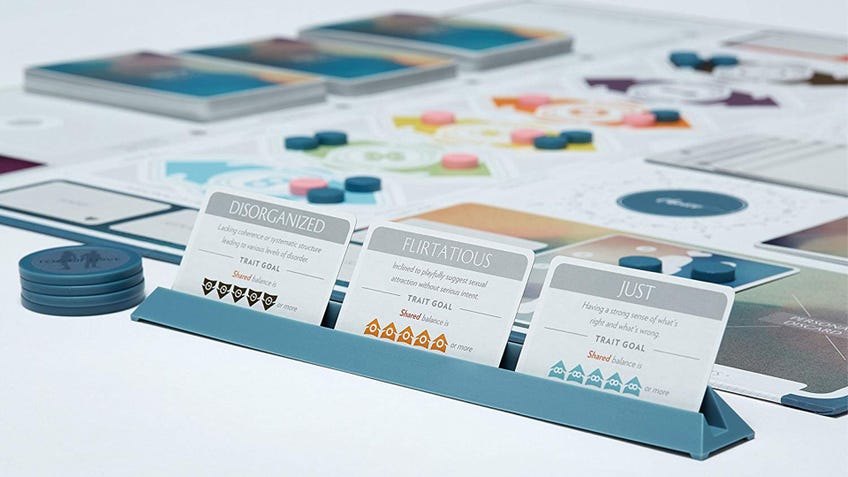The greatest board game stories are told around the tabletop, not on it
Playing with your tale.
The choose-your-own-adventure style of storytelling is finding itself in an increasing number of new board games. Games such as Gloomhaven or Mansions of Madness promise branching storylines and choices that will affect your story and the world you’re exploring. As more of these titles come out, the quality of the writing is improving over time, but no game will tell better stories than the ones you make with your friends around the table.
Many narrative-driven board games are direct attempts to capture the magic of tabletop roleplaying games without the need of a dungeon master to plan and guide the experience. What makes RPGs so much fun is the exciting, tense, clever or utterly wacky shenanigans you concoct on the spot.
The goal of all of these experiences - be it pre-written narratives or improvised D&D adventures - is to tap into your desire for adventure and discovery. You want to be surprised, to craft your own story and influence a world that you and your friends have built and experienced together. Board games like Sleeping Gods and Forgotten Waters are fun, and they often do a great job of surprising players.
Even with companion apps and storybooks making it easier to create branching narratives, these types of games are limited in their ability to let you get creative and experiment.
However, even with companion apps and storybooks making it easier to create branching narratives that make your decisions matter, these types of games are limited in their ability to let you get creative and experiment. You will always be working through a story that someone else has written for you. With some imagination, though, you can craft delightful, zany and sometimes moving stories out of board games with nary a book or app in sight.

Clever use of theme and setting in a game that stands on its own mechanically is the most effective way to allow for telling a great story. Perfect themes create a language through which you describe your actions in the game and by which the story of the game is told.
Perfect themes create a language through which the story of the game is told.
A board game that excels at this style of thematic storytelling is Fog of Love, which pitches itself as a ‘romantic comedy’. At the end of every game you will find yourself looking back at the relationship you just worked through and remembering the highs and lows as if it were real. Simply by describing the actions you took through the game’s thematic language - using terms the game sets up for you that tie together its subjects and mechanics - you will find yourself telling a unique story each time. Sometimes it’s the horrifying account of a manipulative monster that acts selfishly at every turn, dominating their well-meaning partner who inexplicably loves them unconditionally. Other times it’s a heartwarming tale of two people with nothing in common finding ways to enjoy life together and surprise one another as equal partners. You can’t help but roleplay as ridiculous scenarios play out, all guided purely by how the game itself operates.

Spirit Island is another game that delivers on this method of storytelling. A refreshing take on the all-too-common theme of colonialism allows you to decimate the colonials trying to inhabit an island by playing the powerful spirits that protect it. Every bit of lore is tucked away in the rulebook for you to dive in to as much or as little as you wish, and there is no flavour text in sight on any of the dozens of cards. Despite this, it’s one of the richest worlds in board games, weaving together theme and mechanics seamlessly. There’s a brief description of every spirit on the back of their board, but it doesn’t tell you anything you wouldn’t learn simply by playing.
By playing the game and participating in its thematic language you’ll tell a different story every game that’s full of twists, turns, surprises and nail-biting finales. You will not soon forget a game in which the powerful ocean spirit sends an entire section of the island into the briny depths, frightening the invaders to their breaking point as they flee the island just before they damage it beyond repair. The island is left in disarray and the victory was not clean. Still, with time, it can heal.

A prime example of a game that tells great stories is Arkham Horror: The Card Game, which has the best of both worlds. The living card game is a narrative-driven experience with decisions to make throughout each campaign that affect the outcome of future scenarios. However, the story entries are brief and largely serve to set up the gameplay elements unique to each scenario. From there it’s all up to the players to fill in the gaps between major story beats.
Speaking the game's thematic language is often hilariously absurd and one of the reasons it’s an outstanding story experience. In a recent session, I armed myself with a shotgun and walked into a scummy casino hidden behind a restaurant. I began questioning patrons about the whereabouts of a missing professor aided by my magnifying glass. Suddenly I was attacked by an abominable horror that would have driven me insane - if not for the fact that I had my teddy bear handy.
There will always be a place for legacy games, storybooks and companion apps on the tabletop, but those innovations shouldn’t come at the cost of losing board games that are rich in theme and allow for world-building without using text. There’s no better story than one you’ve made with your friends.


